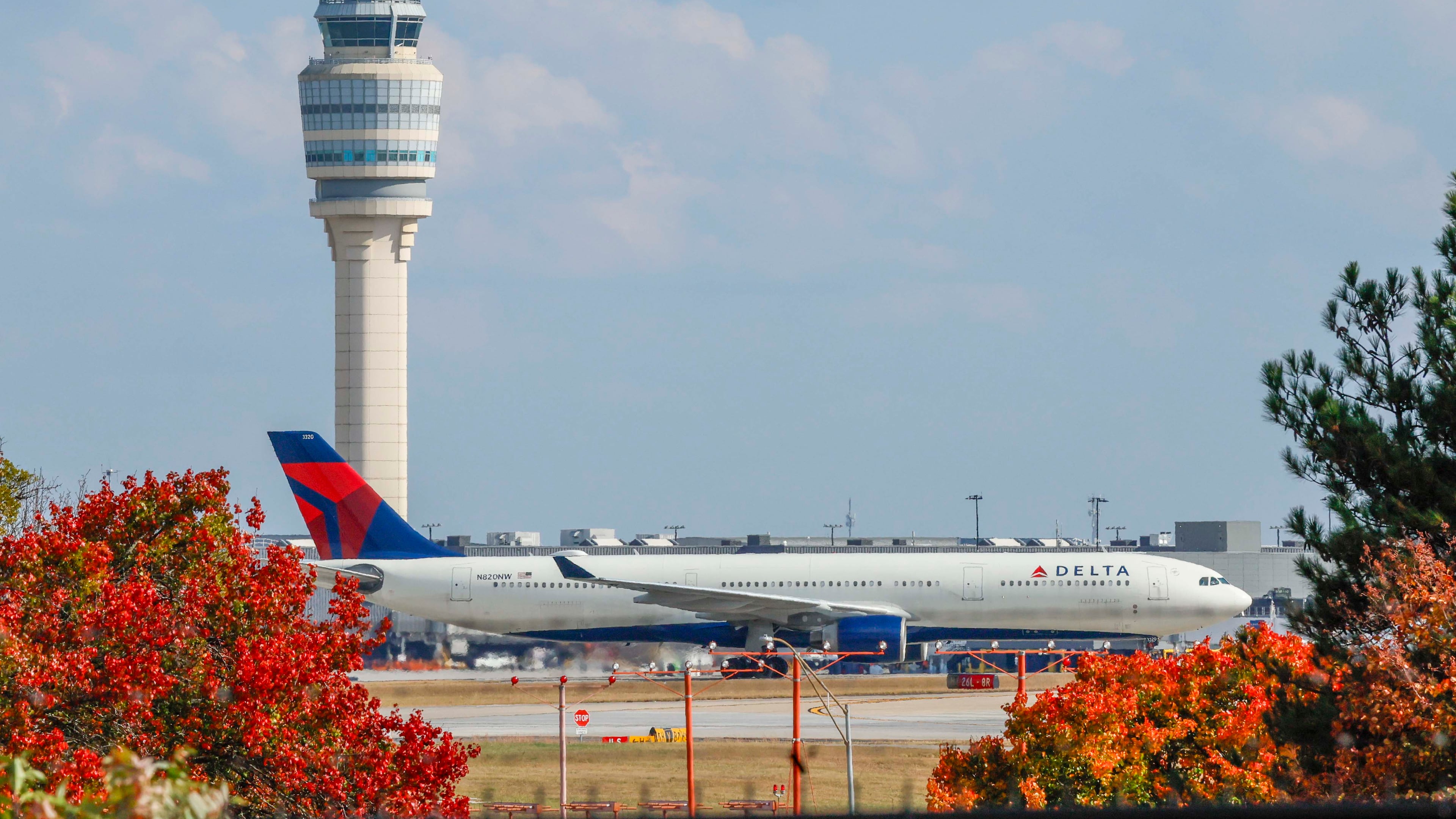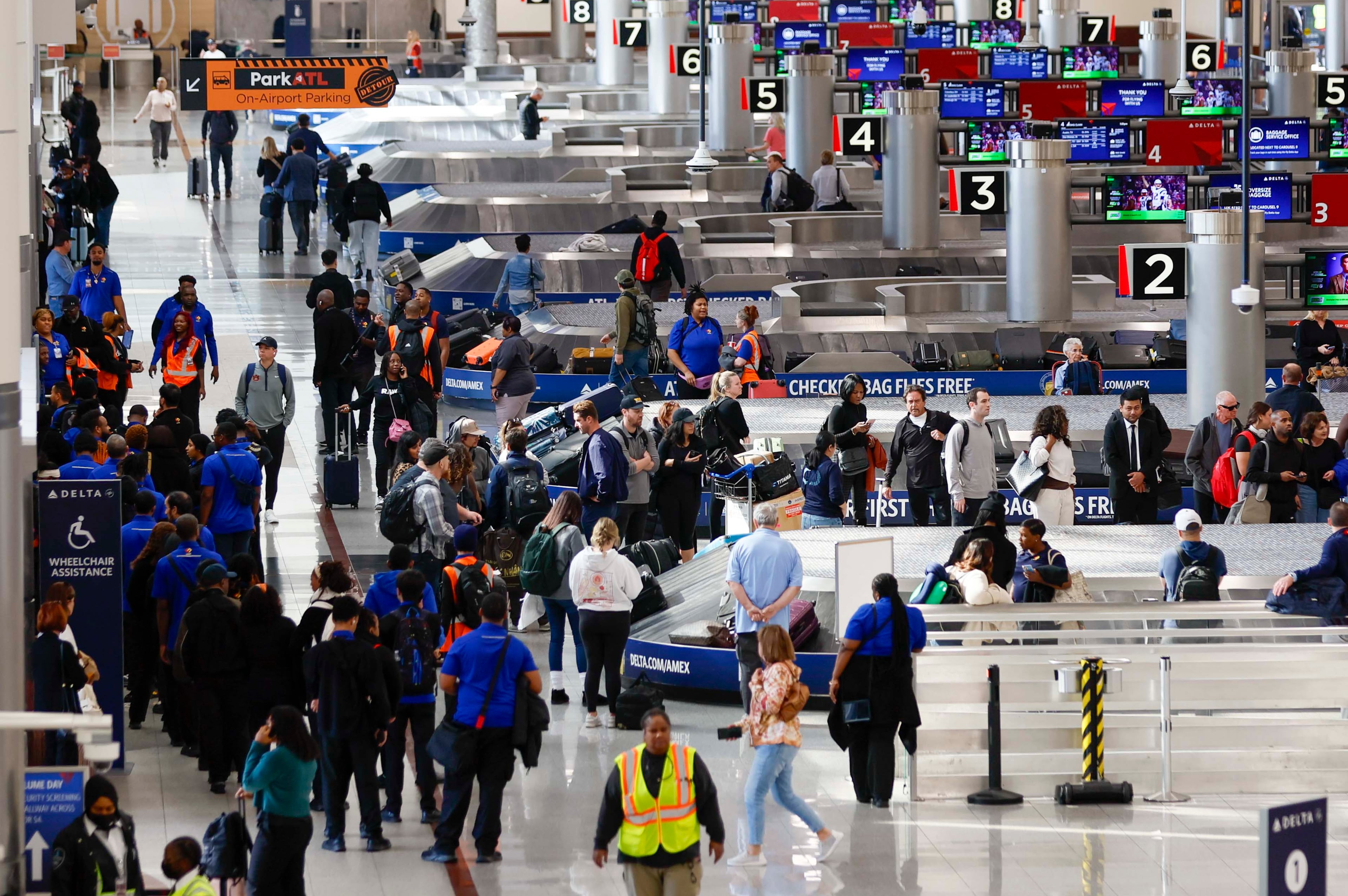FAA halts private jet flights at major commercial airports, including Atlanta

In response to continued air traffic controller staffing shortages, the Federal Aviation Administration has largely prohibited private jet flights at 12 of the country’s busiest airports, including Hartsfield-Jackson Atlanta International Airport.
The limitations do not involve popular general aviation airports in metro Atlanta — those that do not offer airline-operated flights, such as DeKalb-Peachtree, Gwinnett County Airport at Briscoe Field or Fulton County Executive Airport.
The FAA said last week that commercial air capacity reductions to address controller staffing tightness would start at 4% last Friday, increase to 6% Tuesday, 8% by Thursday and 10% by this Friday.
Monday marked the second missed paycheck for air traffic controllers since the shutdown began.
The general aviation cuts went into effect on midnight Monday morning, the National Business Aviation Association President and CEO Ed Bolen said in a statement.
The cuts “will effectively prohibit business aviation operations at 12 of those airports, disproportionately impacting general aviation, an industry that creates more than a million jobs, generates $340 billion in economic impact and supports humanitarian flights every day,” he said.
Last year, Hartsfield-Jackson saw nearly 7,000 general aviation flights, less than 1% of its total operations.
Limited exceptions will be made for aircraft based at the 12 commercial airports, as well as emergency, medical, law-enforcement, firefighting, military operations and other exceptions authorized by the FAA, Bolen’s statement said.

George Mattson, CEO of Atlanta-based Wheels Up, a private aviation company backed by Delta Air Lines, told The Atlanta Journal-Constitution that things have gotten more challenging in the last three or four days.
Particularly in high congestion areas, he said, “we’re definitely seeing some impacts.”
However, given general aviation’s wider access to smaller airports, “We’re a little more able to work around them because we’re tending to go to not the largest airports.”
“In fact, in many respects, private aviation is benefiting right now,” he said, given the uncertainty of commercial travel.
Big picture, he said, general aviation is also quite concerned about larger air traffic control system issues.
“Staffing is definitely something that affects all of us,” he said.
“We’re flying through the same gateways and regional centers that the commercial aviation folks are flying through. And there’s certain bottlenecks in the system that are well known around New York, in Jacksonville, elsewhere, that are perennial challenges.”
Given that Wheels Up does largely use less congested, smaller airports, “in some ways, we’re a beneficiary of some of these challenges, but at the same time, they also affect us. So it’s a little bit of a double-edged sword.”
General aviation restrictions
General aviation flights have been largely restricted at the following major U.S. commercial airports.
- Chicago O’Hare International
- Dallas Fort Worth International
- Denver International
- General Edward Lawrence Logan International (Boston)
- George Bush Intercontinental (Houston)
- Hartsfield-Jackson Atlanta International
- John F. Kennedy International (New York City)
- Los Angeles International
- Newark Liberty International
- Phoenix Sky Harbor International
- Ronald Reagan Washington National
- Seattle-Tacoma International

